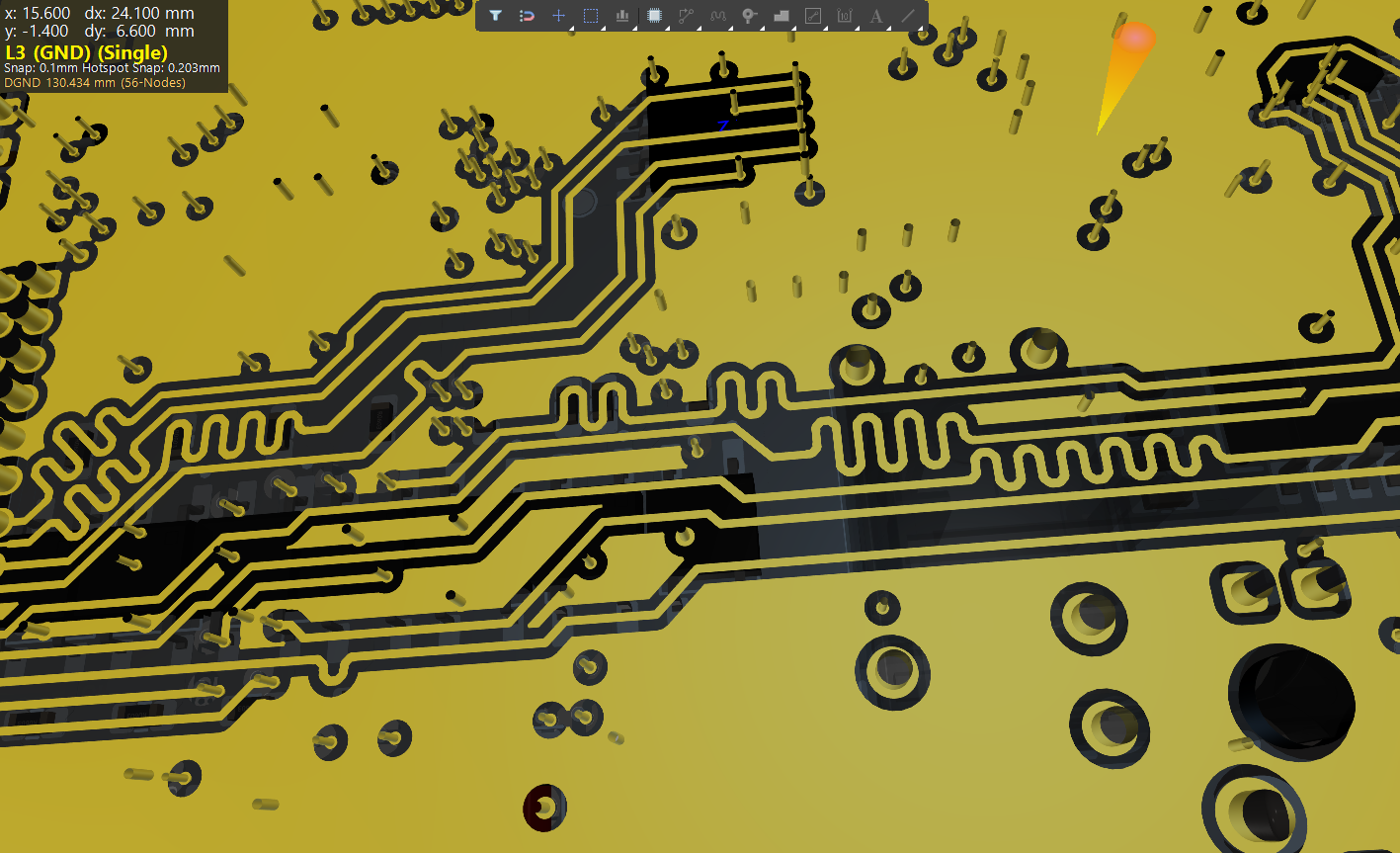Service
High Speed Board Designing
Overview
As a professional PCB design engineer, I offer comprehensive high-speed PCB design services. These services cater to various applications, including Linux-based systems, embedded systems, and complex board designs with high-speed HDMI, gigabit Ethernet, USB 3.0, and TTL logic level conversions. The goal is to deliver reliable, efficient, and high-performance PCBs tailored to the specific needs of each client.

Strategy
- Client Requirements Gathering
- Objective: Understand the client’s project needs and specifications.
- Details:
- Conduct an initial consultation with the client to discuss their project requirements, objectives, and constraints.
- Collect detailed technical specifications, including desired performance metrics, physical dimensions, component requirements, and specific interfaces such as high-speed HDMI, gigabit Ethernet, USB 3.0, and TTL logic level conversions.
- Identify the end application of the PCB to ensure the design meets the intended use case.
- Feasibility Study and Preliminary Design
- Objective: Assess the feasibility of the project and create an initial design concept.
- Details:
- Evaluate the technical and financial feasibility of the project based on the client’s requirements.
- Perform a preliminary analysis to identify potential challenges and solutions related to high-speed signal integrity, power integrity, and EMI/EMC compliance.
- Develop an initial schematic diagram and layout concept using design software such as Altium Designer or KiCad.
- Provide the client with a preliminary design report and cost estimate for approval.
- Detailed Design and Simulation
- Objective: Develop a detailed PCB design and validate its performance through simulations.
- Details:
- Create detailed schematic diagrams and PCB layouts using advanced design software like Altium Designer and KiCad.
- Ensure adherence to high-speed design principles, focusing on controlled impedance for high-speed HDMI, gigabit Ethernet, and USB 3.0 interfaces.
- Implement TTL logic level conversions as required by the design specifications.
- Perform simulations to validate the design’s performance, including signal integrity analysis, thermal analysis, and power distribution analysis.
- Optimize the design based on simulation results to ensure reliability and performance.
- Prototyping and Testing
- Objective: Manufacture a prototype PCB and conduct thorough testing to ensure it meets the design specifications.
- Details:
- Coordinate with PCB fabrication and assembly partners to produce prototype boards.
- Perform functional testing, signal integrity testing, and thermal testing on the prototypes, focusing on high-speed interfaces like HDMI, gigabit Ethernet, and USB 3.0.
- Test TTL logic level conversion circuits to ensure proper operation.
- Identify and resolve any issues found during testing, and iterate the design if necessary.
- Document the testing process and results for client review.
- Final Design Review and Delivery
- Objective: Finalize the PCB design and deliver all necessary documentation and files to the client.
- Details:
- Conduct a comprehensive design review with the client to ensure all requirements, including those for high-speed interfaces and logic level conversions, are met.
- Make any final adjustments to the design based on client feedback.
- Prepare all necessary documentation, including Gerber files, BOM (Bill of Materials), assembly drawings, and test reports.
- Provide the client with the final design package and offer support for the initial production run if required.
By following this structured approach, we ensure that every high-speed PCB design project is executed efficiently, meets the client’s needs, and adheres to the highest standards of quality and performance.
